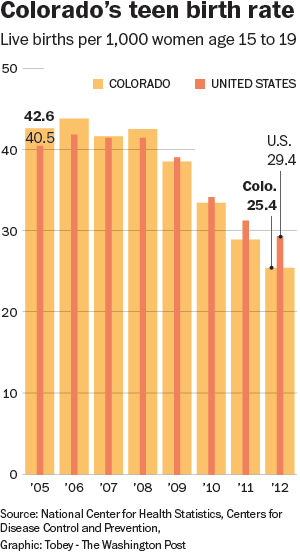Colorado Lawmakers' Brilliant Tactic to Help Reduce Unwanted Pregnancy

By:
Colorado politicians have been spotted making a fashion statement at the state Capitol in support of a new contraception measure. Last week, the state made headlines after legislators decided to wear intrauterine device (IUD) earrings and lapels to promote a bill that would finance the Colorado Family Planning Initiative, which would use $5 million to provide IUDs and other reversible forms of birth control to women for little to no money.
"It helps kind of get the conversation going, as well as alleviate fears people have when they hear the term IUD," Dr. Larry Wolk, Colorado's chief medical officer, told the Denver Post of the jewelry. Virginia Smith, an OB-GYN based in Ohio, created the earrings and has sold around 200 pairs to people in Colorado.

Photo: Virginia Smith/Etsy
The Colorado Family Planning Initiative was previously financed by private grants since 2009, but the money is set to expire at the end of June. As a result, some lawmakers want to step in and provide public funding. Last year, Colorado state Rep. Bob Beauprez came under fire for calling IUDs "abortifacient," likening a contraceptive to an abortion. Intrauterine devices, however, don't cause abortions. They're designed to prevent pregnancy, just like birth control pills.
Over the past six years, the Colorado Family Planning Initiative has reportedly given 30,000 subsidized IUDs to women in the state, resulting in a 40 percent drop in teen pregnancies over the last four years.

The initiative has also saved the state a significant amount of money by reducing healthcare expenditures related to unwanted pregnancies. The data show savings of $42.5 million in public funds for 2010. Colorado's overall teen birth rate has gone down since the initiative first began distributing contraceptives. Warren Buffett's Family Foundation has given more than $23 million in donations to the program.
Last summer, a Colorado family nurse named Liz Romer told the BBC that IUDs typically range between $500 and a couple thousand dollars, making them unaffordable for many women, especially teens who lack that kind of money. "It needs to be readily available, the same day, and it needs to be free," Romer said.
Romer believes better access to contraceptives can decrease pregnancy rates, but conservatives often believe the opposite happens. Carrie Gordon Earll of Focus on the Family, a global Christian ministry, said last year that more birth control means more sex, which, of course, causes pregnancy, "What we have seen over many years is that access to contraception does not equal fewer unintended pregnancies and fewer abortions. Availability of contraception leads to increased sexual activity, which leads to unintended pregnancies and abortions."
IUDs are inserted by medical professionals to prevent pregnancy. At Planned Parenthood, they can cost up $1,000, but can also last up to 12 years. Under the Affordable Care Act, birth control pills are free, but must be taken at the same time every day for full effectiveness.
